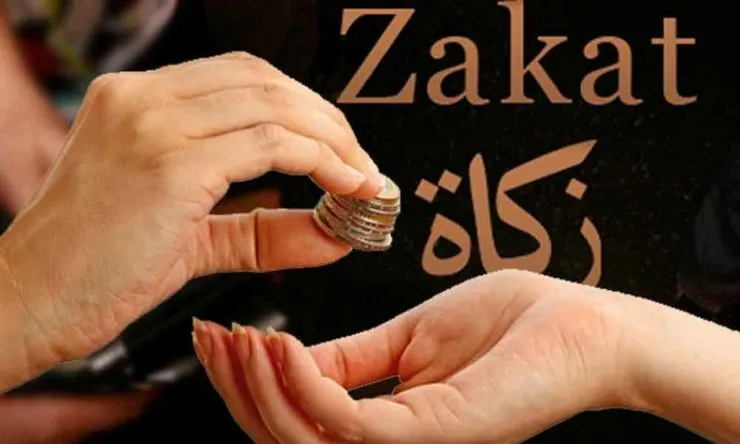
When and How to Pay Zakat in Pakistan
Zakat donation in Pakistan holds significant importance, not only as a core tenet of Islam but also as a powerful tool for social welfare and poverty alleviation. As one of the five pillars of Islam, zakat is a divine obligation upon every eligible Muslim who meets the criteria of wealth. In the Islamic tradition, zakat is more than charity—it is a duty, a form of purification of wealth, and a mechanism to bring equity within society.
In Pakistan, where millions live below the poverty line, the correct calculation, timing, and distribution of zakat can transform countless lives. Organizations like SOS Children’s Villages Pakistan rely heavily on zakat contributions to support vulnerable and orphaned children by providing them with shelter, education, healthcare, and a nurturing environment.
This blog provides a comprehensive guide to understanding when and how to pay zakat in Pakistan, the religious criteria behind it, how to calculate it, whom it should benefit, and the impact it creates in the community.
Zakat Donation in Pakistan: A Critical Need
In a country like Pakistan, where over 37% of the population lives below the poverty line, zakat acts as a vital economic equalizer. It supports orphans, widows, low-income families, the disabled, and those burdened by debt.
Organizations such as SOS Children’s Villages Pakistan use zakat funds transparently to assist orphaned children by placing them in family-like environments, ensuring their educational and psychological development.
Impact of Zakat in Pakistan:
- Funds free healthcare clinics and hospitals
- Supports orphanages and children’s villages
- Enables vocational training for women
- Provides scholarships and school tuition for underprivileged students
- Helps in disaster relief and rehabilitation
Who Must Pay Zakat?
Zakat is obligatory (fard) upon every adult, sane, and Muslim individual who possesses wealth equal to or more than the nisab and has held it for one full lunar year (hawl).
Eligible Wealth Types:
- Cash (in hand, in bank, or digital wallets)
- Gold and silver
- Stock investments
- Business inventory
- Agricultural produce
- Rental income
- Retirement and savings accounts
Nisab Threshold (2025 Estimate in Pakistan):
- Gold: 7.5 tolas (approx. 87.48 grams or ~PKR 650,000 depending on current rates)
- Silver: 52.5 tolas (approx. 612.36 grams or ~PKR 180,000)
If a person possesses wealth equal to or above this value (after deducting debts and immediate liabilities), they are obligated to pay 2.5% of their total zakatable assets.
When to Pay Zakat?
Zakat becomes due one lunar year (354 days) after a person first becomes owner of wealth above the nisab level. The specific date is unique to each person, based on when their wealth first exceeded nisab.
Common Practice in Pakistan:
Most Muslims in Pakistan pay zakat during Ramadan, considering the month’s multiplied rewards. However, it’s important to note that:
- You can pay zakat any time of the year once the one-year cycle is complete.
- Delaying beyond your due date is discouraged unless you’re arranging for proper distribution.
Yearly Reminder Tip:
Fix a date on your Islamic (Hijri) calendar and set annual reminders. Many zakat payers align it with the 27th night of Ramadan for spiritual significance.
How to Calculate Zakat in Pakistan: A Step-by-Step Guide
Let’s walk through a simplified method to calculate your zakat.
Step 1: Determine All Zakatable Assets
Include:
- Cash in hand, banks, and savings
- Gold and silver (jewelry or bullion)
- Business assets (stock, inventory, receivables)
- Investments (shares, mutual funds)
- Rental income balances
Step 2: Deduct Immediate Liabilities
Subtract:
- Debts payable within a year
- Utility bills due
- House rent payable
- Loan repayments (within the year)
Step 3: Total Your Net Zakatable Wealth
Example:
- Cash in bank: PKR 200,000
- Gold (20 grams): PKR 190,000
- Business stock: PKR 150,000
- Liabilities: PKR 50,000
Total Net Wealth = 200,000 + 190,000 + 150,000 – 50,000 = PKR 490,000
If this exceeds nisab (say PKR 180,000), zakat is due.
Step 4: Calculate 2.5% of Net Wealth
Zakat = 2.5% × 490,000 = PKR 12,250
Who Can Receive Zakat?
Zakat must be given to the eight categories defined in the Quran (Surah At-Tawbah 9:60). In Pakistan, this includes:
- Fuqara – Poor who don’t beg but are in need
- Masakeen – Destitute or extremely poor
- Amil Zakat – Zakat collectors and distributors
- Mu’allafatul Quloob – Those whose hearts need reconciliation (e.g., new Muslims)
- Riqab – To free captives/slaves
- Gharimeen – Those in debt
- Fi Sabilillah – In the cause of Allah (e.g., welfare work)
- Ibn Sabeel – Stranded travelers in need
Zakat cannot be given to:
- Your parents, children, or spouse
- The rich or those above nisab
- Non-Muslims (for obligatory zakat, although sadaqah is permissible)
Best Practices for Giving Zakat in Pakistan
- Give Locally First
Pakistan has millions of deserving recipients—widows, orphans, street children, flood victims, and underprivileged families. Giving locally ensures visibility and impact.
- Verify Authenticity of Organizations
Only give zakat to registered, transparent NGOs like SOS Children’s Villages Pakistan that:
- Maintain zakat-compliant accounts
- Offer annual financial reports
- Respect the dignity and privacy of beneficiaries
- Pay in Advance or Installments (If Needed)
Zakat can be paid in advance before your due date or in monthly installments, provided the full amount is cleared by the next cycle.
- Maintain a Personal Zakat Record
Keep a personal spreadsheet or journal with your annual zakat calculations and payment confirmations. This helps during audits or religious evaluations.
Why SOS Children’s Villages Pakistan Deserves Your Zakat
At SOS Children’s Villages Pakistan, we provide family-like homes for orphaned and abandoned children. Your zakat donation is used to cover:
- Daily care (food, clothing, housing)
- School and college education
- Healthcare and emotional therapy
- Vocational training and life skills
We strictly follow Shariah-compliant zakat usage policies, ensuring your contribution reaches eligible children and families in need.
Why Choose Us?
- Transparent financial reporting
- Verified by Islamic scholars
- Registered under relevant zakat laws
- Impact-driven programs with long-term results
Common Misconceptions About Zakat
Myth 1: Zakat is Only for the Poor Who Beg
Truth: Many deserving recipients are silent sufferers—widows, orphans, or internally displaced people—who never ask for help but live below the poverty line.
Myth 2: Zakat Can Be Used for Infrastructure or Mosque Construction
Truth: Zakat must be given to individuals, not used to build infrastructure unless it’s clearly for direct, eligible beneficiaries.
Myth 3: Zakat Can Be Paid on Net Income
Truth: Zakat is calculated on wealth, not income. You may earn well but are only obligated if your net assets exceed nisab after debts.
Myth 4: You Must Wait for Ramadan
Truth: You can pay zakat any time your zakat anniversary arrives, even outside of Ramadan.
How to Pay Zakat in Pakistan: Options and Channels
- Direct Payment to Individuals
Pros: Personal connection, immediate impact
Cons: Requires trust, lacks audit trail
- Through NGOs Like SOS Children’s Villages Pakistan
Pros:
- Tax-deductible donation
- Verified usage
- Reports on impact
- Eligible recipients vetted properly
- Online Platforms and Bank Transfers
- Use trusted Islamic banks
- Always get a payment confirmation
- Ensure proper zakat tagging when donating online
Conclusion
Zakat donation in Pakistan is more than a religious obligation—it’s a life-changing contribution. When calculated correctly and distributed ethically, zakat can uplift the lives of thousands, break the cycle of poverty, and bring spiritual peace to the giver.
Institutions like SOS Children’s Villages Pakistan are bridges between your generosity and the lives of innocent children who dream of safety, education, and love. By entrusting your zakat to such reputable organizations, you ensure your wealth is not only purified but also purposefully invested in creating a better Pakistan.






